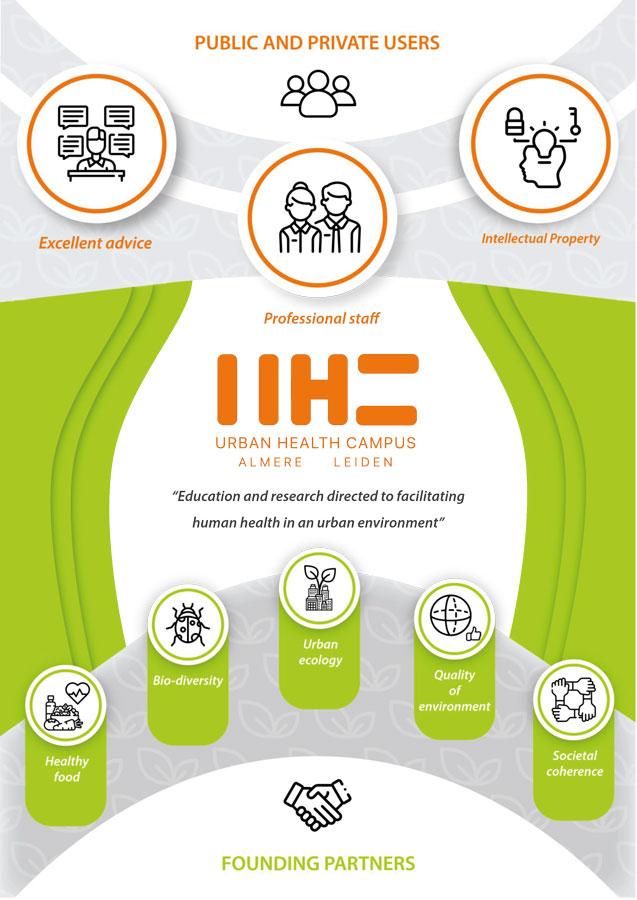AUTUMN 2021
Autumn is a period of senescence and termination. In contrast, we picked up a new challenging job.It is the establishment of the Urban Health Campus Almere Leiden.You may read about it in this Newsletter.
Urban Health Campus
Almere Leiden
Nature is the basis of life on earth. We need it to feed, to breath, and to relax. Urbanisation has resulted in an erosion of nature worldwide. In addition, it triggered a climate change that will affect ultimately the lives of millions of people. Mankind is facing huge problems to keep the earth vital. Actually, we are searching for nature-based solutions to solve the problems.
The progressive urbanisation of the world triggered scientific interest in urban health. The resulting science is directed to the determinants of health in an urban environment, in which the urban context is the exposure of interest itself (Galea & Vlahov, 2005). Adopting an interdisciplinary approach is indispensable to investigate urban health. The subsequent step from science to actual health interventions in an urban environment is a challenging one.
Health is determined by a three-way-interaction of, the physical body, perception of the own body, and the environment (Wobbes, 2020). The environment has a physical and social component. Health, or the lack of it, is a rather subjective term. A person may feel ‘ill’, a physician may diagnose it as a formal ‘disease’, or not, and the society may call somebody ‘sick’. In addition, the societal settings influence the formal list of diseases that can be diagnosed by a physician. So, we should be aware that health is a rather complex and context-dependent subject.
The aim of the founding partners of the Urban Health Campus Almere Leiden (UHC) is bundling and strengthening education and research directed to human health in an urban environment. They have initially selected five themes of teaching and investigating urban health: healthy food, bio-diversity, urban ecology, quality of environment, and societal coherence.
DRS is engaged as the trailblazer of the UHC. The three major tasks are, (1) initiating and facilitating the collaboration among the partners regarding the education and research programmes, (2) communicating the UHC to a broad audience of stakeholders, and (3) proposing a legal entity of the UHC that is efficacious and financially sustainable.
Do you like to have a maximum of return of your research money? Does your research belong to the Life Sciences? Just contact us for more information, on paper, by way of a presentation, or an exploring chat.


